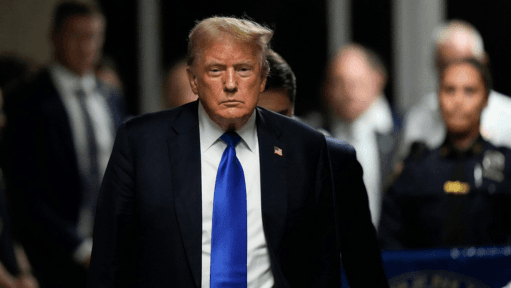
Supreme Court Affirms Presidential Immunity for Actions Within Constitutional Authority
Historic Ruling Shields Former President Trump from Criminal Prosecution for Official Acts, Sparking Debate on Accountability and Executive Power
In a historic ruling, the United States Supreme Court on Monday affirmed that former President Donald J. Trump is entitled to absolute immunity from criminal prosecution for actions undertaken within the scope of his constitutional authority during his presidency. The decision, seen as a defining moment in the interpretation of presidential powers, reinforces the principle that the executive branch requires broad protection to perform its duties without fear of legal retaliation.
The Ruling
In a 6-3 decision, the Supreme Court emphasized that actions taken by a sitting president within their constitutional authority cannot be subject to criminal prosecution, even after their term ends. Writing for the majority, Chief Justice John Roberts stated that the Constitution grants the president broad discretion to perform duties that are integral to the functioning of the executive branch. According to the Court, prosecuting a former president for such acts would undermine the separation of powers and expose the presidency to politically motivated legal challenges.
The ruling clarified that immunity applies strictly to actions taken within the constitutional authority of the presidency. Acts that fall outside this scope, such as purely private conduct or criminal behavior unrelated to official duties, remain prosecutable under the law.
The Case
The decision stemmed from investigations into actions taken by Trump during his presidency, including allegations that he obstructed justice and interfered with the functioning of federal agencies. Lower courts had been divided on whether these actions, if proven, constituted criminal conduct or fell under the president's protected executive powers.
Trump’s legal team argued that the former president's actions were within his constitutional authority, including decisions related to national security, law enforcement, and the administration of justice. They maintained that allowing prosecution for such actions would set a dangerous precedent, deterring future presidents from making decisions without fear of legal consequences.
The Supreme Court’s ruling aligns with past precedents that have granted presidents broad immunity for official acts. However, the Court noted that this immunity is not absolute in all contexts. Civil suits or congressional oversight may still address misconduct, ensuring accountability through non-criminal mechanisms.
Dissenting Opinions
The three dissenting justices argued that the decision could erode accountability for presidential actions. Justice Sonia Sotomayor, writing for the minority, expressed concern that the ruling might encourage abuse of power by shielding presidents from legal consequences for misconduct disguised as official duties.
“While the presidency requires certain protections, the principle of accountability must not be sacrificed at the altar of immunity,” Sotomayor wrote. The dissent warned that unchecked immunity risks undermining public trust in the rule of law.
Implications
The ruling has sparked a national debate about the balance between presidential immunity and accountability. Supporters of the decision argue that it strengthens the presidency by safeguarding the executive branch from politically motivated prosecutions. Critics, however, fear it could create a dangerous precedent, allowing presidents to act with impunity during their tenure.
Legal experts suggest that the decision may shape how future administrations approach controversial actions and could lead to legislative efforts to redefine the limits of presidential immunity. Meanwhile, Trump and his allies hailed the ruling as a victory for the Constitution, claiming it validates the former president’s decisions while in office.
Broader Context
The Supreme Court's decision is the latest development in a series of legal battles surrounding Trump’s post-presidency. It highlights the ongoing challenges of balancing presidential authority with mechanisms to ensure accountability in a polarized political environment.
As the dust settles, the decision underscores the enduring complexities of constitutional law and the evolving interpretation of executive powers in the United States. Whether it will strengthen the office of the presidency or raise new questions about its limitations remains a topic of intense public and legal scrutiny.
For any enquiries or information, contact ask@tlr.ae or call us on +971 52 644 3004. Follow The Law Reporters on WhatsApp Channels